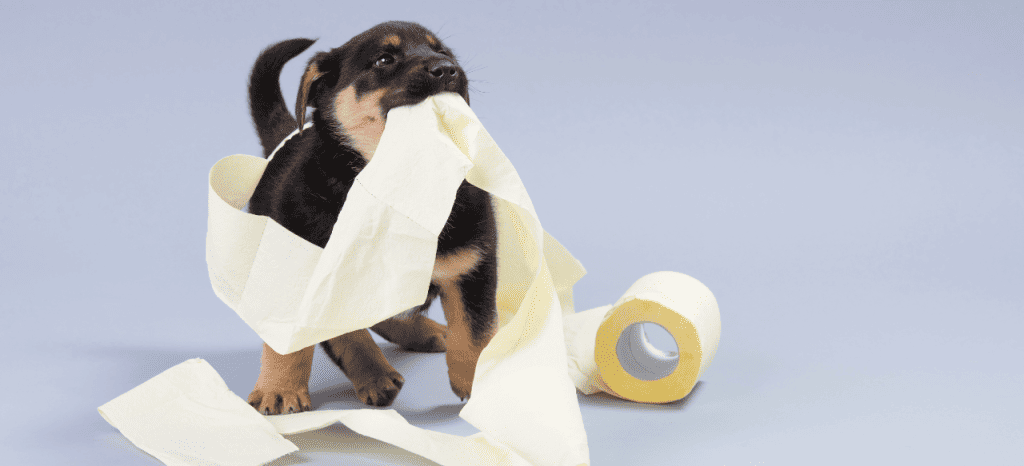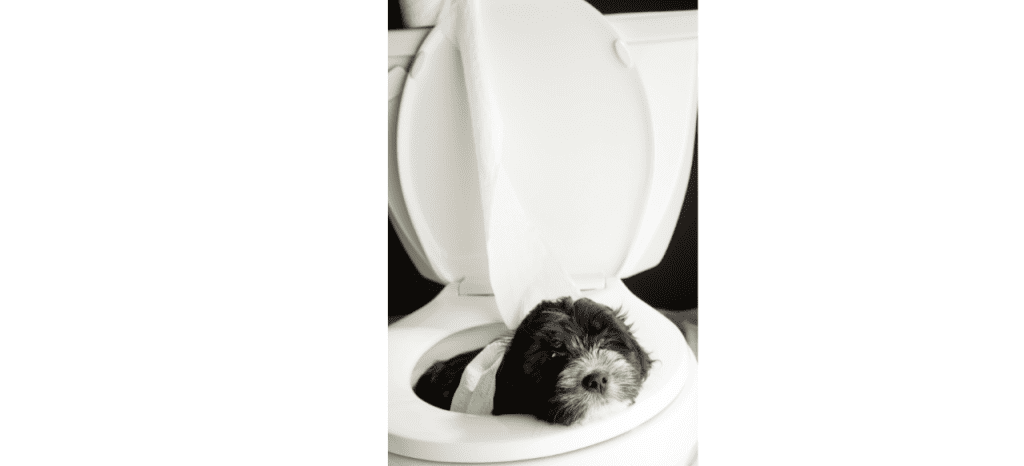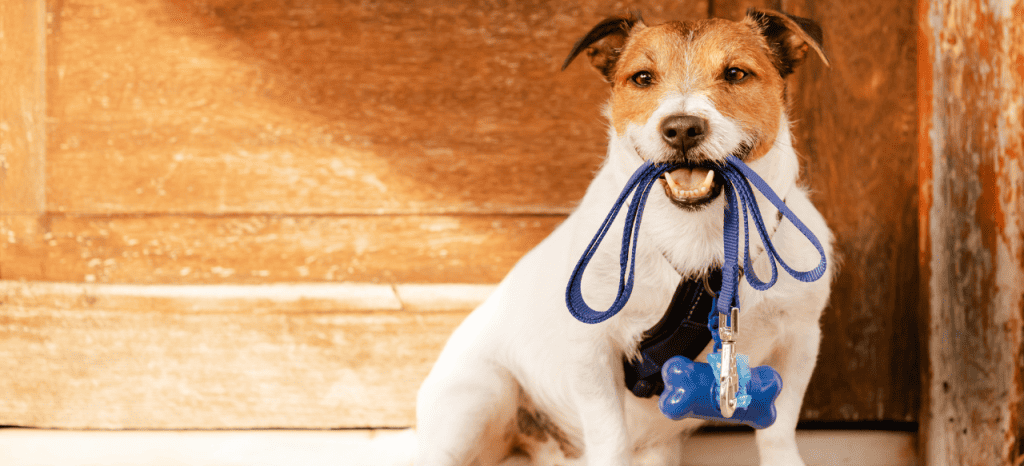Puppies are adorable bundles of joy, but they can also leave you scratching your head with their quirky behaviors. One such head-scratcher is the phenomenon of puppies peeing while lying down. If you’ve ever wondered why your furry friend does this, you’re in for a treat! We’re diving into this peculiar behavior in our list-style article filled with entertaining insights.
Why does my Puppy pee while lying down?
The Sleepy Sprinkler
Imagine this scenario: Your puppy is snuggled up on the couch, enjoying a blissful nap, and suddenly, a tiny puddle appears beneath them. It might seem like a mystery, but it’s often a sign that your pup is in such a deep sleep that their bladder relaxes, causing an unintentional release.
Think of it as the equivalent of you rolling over and mumbling in your sleep! Just as your body is so deeply relaxed during certain sleep stages that you might unconsciously shift positions or mutter incomprehensible words, your puppy’s body can undergo similar involuntary actions. When your puppy is in this deep sleep state, their muscles, including those responsible for holding in urine, may temporarily relax.

Dreamy Dribbles
Just like humans, dogs indeed experience dreams as they slumber. While the specifics of their dreams remain a mystery, their bodies can react to these dreamscapes just like ours do. Picture this: your puppy is peacefully dozing on the floor, their legs twitching and their body occasionally shifting. What’s happening is a glimpse into their dream world.
During these doggy dreams, your puppy’s brain is active, replaying experiences, processing information, and sometimes creating entirely fictional scenarios. It’s not uncommon for these dreams to be quite vivid, possibly involving activities like running, playing, or chasing after a toy or a squirrel.
As your puppy’s dream unfolds, their muscles may respond accordingly. You might observe their legs kicking, their paws paddling, or their body making subtle movements. These dream-induced actions are essentially their way of acting out their dream content, even if it’s just in their imagination.

Now, here’s where the connection to the lying-down pee phenomenon comes into play. During these dream episodes, your puppy’s body can experience a surge in physiological activity, including an increase in heart rate and sometimes even a rise in blood pressure. These changes can inadvertently affect their bladder control, causing an unintentional pee episode while they’re lying down.
The Lazy Leaker
Puppies, especially the younger ones, are adorable bundles of joy, but they come with some potty-training challenges. It’s essential to understand that these little furballs are still growing and developing, and that includes their ability to control their bladders.
Imagine a scenario with a brand-new puppy in your home. You’ve diligently set up a potty-training routine, but you might still notice occasional “lazy leaks” when they’re at rest. What’s happening here is a part of the natural developmental process for puppies.
At a young age, puppies simply haven’t fully mastered bladder control. Their bodies are still figuring out how to hold urine for extended periods and how to communicate their need to go outside to do their business. This means that, just like human infants who might have diaper accidents, puppies can experience these “lazy leaks” when they’re relaxed or sleeping.

As they grow and mature, their bladder muscles strengthen, and they become better at holding it in for longer durations. Additionally, they start to recognize the signs of needing to go and may even learn to signal you when it’s time for a potty break. It’s all part of the learning curve that puppies go through as they become well-mannered, house-trained dogs.
Excitement Overload
Puppies are known for their boundless energy and enthusiasm, and this exuberance can sometimes get the better of their bladder control. It’s not just during sleep that your puppy might experience lying-down pee accidents; moments of extreme excitement can also be a trigger.
Imagine your puppy is engaged in an exciting playtime session, eagerly cuddling with you, or anxiously waiting for their meal to be served. In these high-energy situations, their focus might be entirely on the fun and enjoyment at hand. Their little hearts race, and their minds are consumed with the thrill of the moment.
During such excitement, puppies may momentarily forget about their bodily needs, including the urge to go potty. It’s as if their enthusiasm overrides their awareness of their bladder. They’re so caught up in the joy of the moment that they may not realize they need to relieve themselves until it’s too late.

This can lead to a little leakage when they’re lying down because the pressure on their bladder increases as they move around, jump, or get into playful positions. When they finally settle down after the excitement, they might find themselves with an unintentional pee episode.
Marking Territory
Territorial behavior in puppies is intriguing and can provide insight into their evolving personalities. While it’s less common in young puppies, some may exhibit signs of territoriality even at a tender age. If your puppy is one of those exhibiting this behavior by peeing while lying down, it’s like they’re sending a message: “This is mine!”
Territorial behavior in dogs is deeply rooted in their instincts and has evolved as a survival strategy. By marking their territory with scent markers like urine, dogs communicate their presence to other animals and establish boundaries. This behavior is more commonly associated with older, more mature dogs, who are more likely to perceive a need to protect their territory.
However, in some cases, even puppies can exhibit early signs of territoriality. When a puppy urinates while lying down, it’s as if they’re staking a claim to the area they’re in, even if it’s just a tiny corner of your living room. It’s their way of saying, “This is my space.”

This behavior can occasionally pop up in young pups because they are developing their understanding of their environment and their place within it. They might be particularly sensitive to changes or new additions to their surroundings, prompting them to engage in territorial marking.
It’s important to note that territorial behavior in puppies is usually less intense and less frequent than in adult dogs. As your puppy matures and gains more experience, they are likely to grow out of this behavior, especially if you establish a consistent potty-training routine and reinforce appropriate bathroom behaviors.
Bladder Infection Blues
While it’s natural to associate lying-down peeing in puppies with behavioral or developmental factors, it’s crucial to be aware that sometimes, underlying health issues can be the underlying cause. Among the potential medical culprits, bladder infections stand out as a common concern.
Bladder infections, also known as urinary tract infections (UTIs), can affect dogs of all ages, including puppies. These infections occur when bacteria enter and multiply within the urinary tract, leading to various symptoms. In the case of puppies, these infections can cause discomfort and a sense of urgency, compelling them to urinate frequently and sometimes in unexpected places, including while lying down.
Here’s how it happens:
- Infection and Inflammation: When bacteria invade the bladder or other parts of the urinary tract, it can lead to inflammation and irritation. This inflammation can trigger the sensation of needing to urinate urgently and frequently, causing your puppy to pee more often than usual.
- Accidental Leaks: The inflammation and irritation can disrupt your puppy’s normal bladder control, leading to accidental leaks. These leaks can occur when your pup is lying down, as they might not have the muscle control to hold it in during these moments.
If you suspect that your puppy’s lying-down peeing is due to a potential bladder infection, it’s essential to be vigilant for other concerning symptoms. These may include:
- Frequent urination.
- Straining or difficulty when urinating.
- Blood in the urine.
- Lethargy.
- Decreased appetite.
- Whining or discomfort while trying to urinate.

If your puppy is experiencing any of these symptoms or if the lying-down peeing becomes a regular occurrence, it’s crucial to consult your veterinarian promptly. A veterinarian can perform tests to diagnose a bladder infection and prescribe appropriate treatment, such as antibiotics, to address the issue. Timely intervention can help alleviate your puppy’s discomfort and prevent complications associated with untreated bladder infections.
Teaching Moments
Encountering a puddle next to your sleepy puppy can indeed be frustrating, but it’s important to view this situation as a valuable teaching opportunity in your puppy’s development. Patience, consistency, and positive reinforcement are key elements in helping your puppy grow out of this habit as they mature.
Here’s why approaching it as a teaching opportunity is essential:
- Puppies Are Still Learning: Remember that puppies are like blank slates. They are learning about the world around them, including how to control their bodily functions. Lying-down peeing is often a result of their immature bladder control, and they require time and guidance to improve.
- Positive Reinforcement: Positive reinforcement is one of the most effective methods for teaching a puppy. When your puppy gets things right, such as going potty outside or in the designated area, praise and reward them enthusiastically. Use treats, toys, or affection to reinforce this positive behavior. By doing so, you’re helping your puppy associate good behavior with positive outcomes.
- Consistency is Key: Consistency is critical in potty training. Establish a regular routine for your puppy, including scheduled feeding times and potty breaks. Take them outside first thing in the morning, after eating, and before bedtime. Be patient and persistent, and your puppy will start to understand that certain behaviors are expected at specific times.
- Crate Training: Crate training can be a helpful tool in potty training. A crate can serve as a safe and comfortable space for your puppy when you can’t supervise them closely. Puppies generally avoid soiling their sleeping area, which can encourage them to hold it until they are taken outside.
- Clean Up Accidents Properly: When accidents happen indoors, it’s essential to clean up the mess thoroughly. Use an enzymatic cleaner to remove the odor completely, as residual scents can attract your puppy back to the same spot. This helps prevent repeated accidents in the same area.
- Monitor Their Behavior: Keep a close eye on your puppy’s behavior and learn to recognize their cues when they need to go potty. These cues might include sniffing, circling, or whining. When you notice these signs, immediately take your puppy outside to the designated potty area.
- Be Patient: Puppies are like children, and they learn at their own pace. Some may catch on quickly, while others may take more time. Be patient with your puppy and avoid scolding or punishing them for accidents, as this can create fear and confusion.

Conclusion
As perplexing as it may seem when your puppy pees while lying down, there’s usually a reasonable explanation behind it. Whether it’s the result of a deep sleep, dreamy adventures, or just an excited pup, understanding the causes can help you navigate this stage of puppyhood with humor and patience. So, embrace the quirks, keep a mop handy, and enjoy the journey of raising your adorable, pee-puddle-prone pup!

